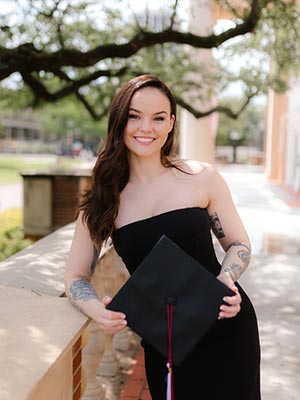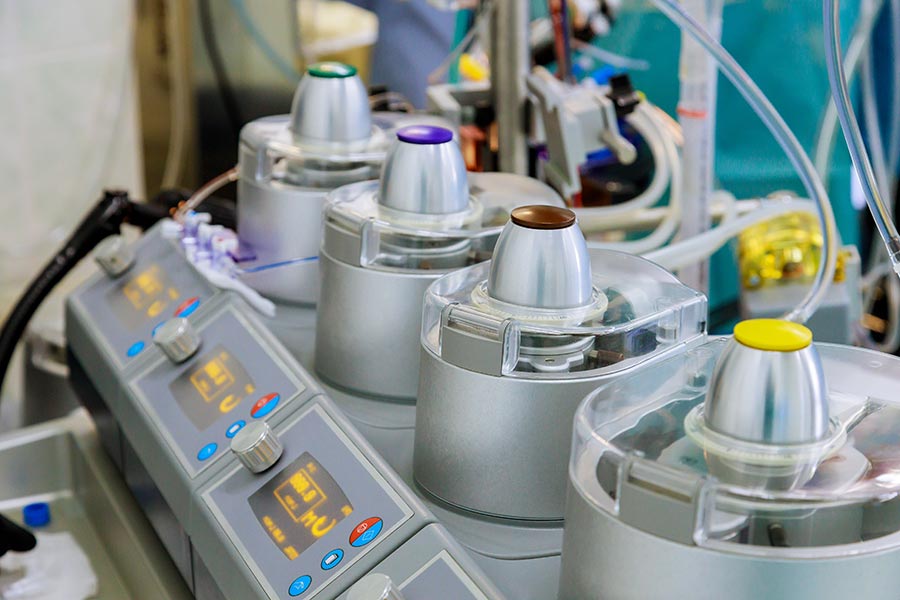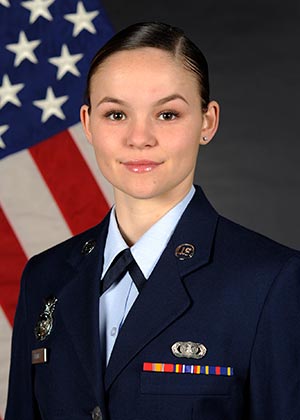Grad finds career calling in cardiac healthcare role

August 1, 2024 – DENTON – Have you heard of an echocardiographer? How about a cardiovascular perfusionist?
Both are highly specialized allied health positions within the healthcare field. Their names may not be as familiar as a physical therapist or speech-language pathologist, but their roles are just as essential.
Echocardiographers, or cardiac sonographers, operate ultrasound equipment that create images of the adult heart. A cardiovascular perfusionist operates a heart and lung machine during cardiac surgery. There are 4,000 perfusionists in the United States, which currently isn’t meeting the demand.
Texas Woman’s 2024 graduate Hannah Klim is hoping to help fill that gap. Klim is the first kinesiology (exercise science) student from the TWU School of Health Promotion and Kinesiology to be accepted into the rigorous cardiovascular perfusion program at Baylor Scott & White’s The Heart Hospitals Cardiovascular Institute (CVI) in Plano.
The one-year, hospital-based certificate program enrolls only seven or eight students a year, and most applicants have a medical background.
“I just went for it,” Klim said. “I honestly didn’t think I was going to get it. It was the first and only program I applied to. The acceptance rate was, I think, 1.4%.”
Initially, Klim chose Texas Woman’s and its kinesiology program so she could pursue a PT career. She worked as a PT technician, but wasn’t sure about continuing down that career path. She had enjoyed an exercise physiology class and its focus on the anatomy of the heart so she researched the cardiac field and learned about perfusion.

To see a perfusionist in action, Klim connected with one on LinkedIn and shadowed him during surgery. Klim served as a police officer in the U.S. Air Force and saw parallels between being a police officer and a perfusionist.
“It’s the same adrenaline rush from when I was a cop, that I liked,” Klim said. “Every time I shadowed a perfusionist, the team was so amazing. Everyone was so helpful. It’s a really small field, so everyone knows everyone. I really liked that aspect. It reminded me of the military. Everyone had each other’s back.”
Klim learned more about perfusion when CVI Director Brad Roberts was a guest speaker in one of her classes.
Most kinesiology students enter fields such as cardiac rehabilitation, physical therapy, and occupational therapy. Roberts, who has 30 years of experience in adult echocardiography, visits TWU kinesiology associate professor Kyle Biggerstaff’s exercise testing & prescription class every semester to let them know about other allied health careers.
He talks to students about the CVI’s three programs: adult echocardiography, perfusion and invasive cardiovascular technology. With their science-heavy class load and interest in the human body, Roberts thinks kinesiology graduates are a perfect fit for some of his programs, especially echocardiography, since it requires just a bachelor’s degree.

“Some of the best people in my field, that are at the top of this field, have a kinesiology or exercise science background,” Roberts said.
And, all three programs are just one year long and offer competitive salaries. Roberts says the
adult echocardiography and invasive cardiovascular technology graduates can start with a salary between $70,000 and $75,000 a year, while perfusionists make double that. With an increasing demand for cardiac surgeries due to an aging population, hospitals are expected to need more perfusionists.
When Roberts met Klim at Biggerstaff’s class, he told her the perfusion program was difficult to get into after she handed him her resume and expressed interest in perfusion.
“She impressed me with her demeanor and her enthusiasm,” Roberts said. “Her resume was extremely impressive. For what she has done as young as she is, being in the service and rising through the ranks. Very impressive for an individual.”
As a security forces journeyman, she was the youngest person at her base in Japan to serve as a sexual assault (JSAT) team lead. She also worked as a liaison between the Office of Special Investigations (OSI) and the security forces, where she interviewed and investigated over 20 felony crimes. Think of the television show NCIS, but for the Air Force.
Klim was not deterred by the perfusion program’s high standards. She knew she had the grades (she maintained a 4.0 GPA), and she felt she could handle the accelerated one-year program.
As it was, Klim had fast-tracked her way through TWU, graduating in just two years by loading up on summer classes and taking courses during the winter break.
“I have my GI bill so they pay for my education for 36 months,” Klim said. “My thought process was if I can get my bachelor’s done in two years then I have another year left over for a master’s or whatever program after, and it actually works out perfectly.”
Klim believes her unique background as a military police officer in an application pool of medical professionals made her stand out. In her interview, she highlighted stressful situations she encountered in the military.
“I was the team lead for aircraft security in foreign countries that were unsafe,” Klim said. “It was stressful because you are there with just your team having to make decisions that could impact the Air Force.”
After taking the leap to leave the Air Force, Klim is excited to start a profession again.
“I have a different experience than most college undergraduates but that doesn’t mean it’s not possible to do it (getting into the perfusion program). It just takes hard work and dedication – and being confident in what you want.”
Media Contact
Amy Ruggini
Digital Content Manager
940-898-3628
aruggini@twu.edu
Page last updated 9:50 AM, August 2, 2024